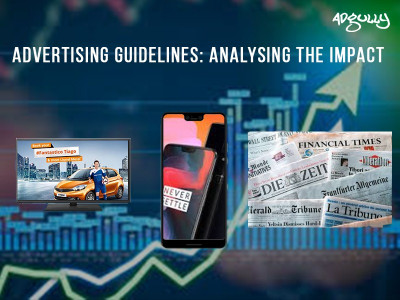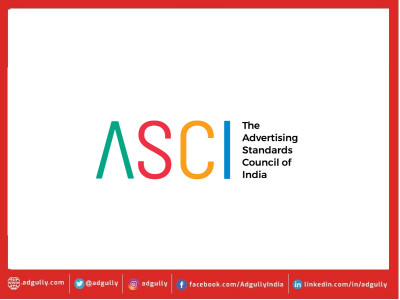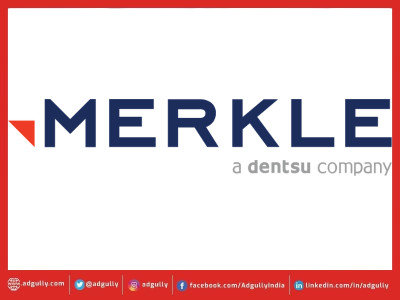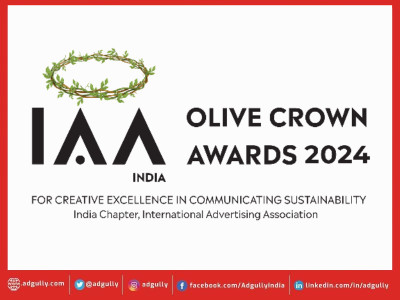Will the new ad guidelines send brands & agencies back to the drawing board?
The advertising industry is in for some clean-up with the release of draft guidelines for prevention of misleading advertisements by the Consumer Affairs Ministry. The guidelines also provide for due diligence for endorsement of advertisements. Under the Consumer Protection Act, 2019 (Act 35 of 2019), the Central Consumer Protection Authority (CCPA) is empowered to issue necessary guidelines to prevent unfair trade practices and protect consumers’ interest.
The guidelines cover all advertising/ marketing communications regardless of form, format or medium and are applicable to the manufacturer/ service provider whose products/ services are the subject of the advertising/ marketing communications, as well as to the advertisement agency and endorser (wherever applicable) of the product/ service.
Also read:
Govt moves to clean up advertising act; frames guidelines for prevention of misleading ads
Giving her perspective on the guidelines, Aazmeen Kasad, Advocate & Professor of Law, Member of the Consumer Complaints Council of the Advertising Standards Council of India, said, “After the formation of the Central Consumer Protection Authority under the newly enforced Consumer Protection Act, 2019, these Guidelines are a natural corollary; and a welcome step to serve as an effective and integral means for the CCPA and the advertising industry to ensure adherence to and compliance with the Consumer Protection law.”
Anupama Ramaswamy, Managing Partner and National Creative Director, Dentsu Impact, noted, “While the proposed guidelines touch upon disclaimers, expert opinions, comparative advertising, “freebie” advertising, it also includes brand celebs, which to me is a first. How this will affect influencer and celebrity advertising is what we need to see in the coming months.”
The guidelines put a larger responsibility on endorsers and brand ambassadors now. While we know that the endorser doesn’t really use the product, they can no longer just endorse a product and back its claims without checking with the brand on its authenticity. Also, no longer can a brand create a fictional character to back the claims their making. These guidelines are important as they will now make the endorser more responsible and also avoid confusion in the consumers’ minds, protecting his or her rights. According a 2019 report by WPP, titled ‘Content, Conversation and Commerce’, 44 per cent of the consumers are influenced by celebrity endorsements and make buying decisions accordingly. These new guidelines will definitely impact endorsement deals. They will make it difficult for endorsers to back products and endorsers might now even start charging more for endorsing brands.
Ramaswamy remarked, “‘Celebs with a conscience’ – if we are looking for that, well what can I possibly say? Well tried. However, to expect all of them to test and use and then endorse… that’s a tough one. The celebrity managers are the ones who need to be careful while doing the contract. Because, I see this becoming part of contracts moving forward.”
One of the biggest characteristics of these guidelines is that they span across mediums. Hence, these guidelines even span to the influencer marketing category.
Many influencers endorse various products, especially local products, on their social media platforms. They have a massive influence on their audience and often affect the audience’s buying decision while also introducing them to new products. The Millennials and GenZ are the ones most influenced by this kind of marketing and hence, it is important that these guidelines covered the digital sector.
The advertising targeted at kids have also been covered under the purview of the guidelines. Brands aren’t allowed to showcase advertisements which might create unrealistic expectations in the child’s mind. Hence, several kids’ brands that showcase extraordinary aspects of their products or exaggerate the results than what they really are, will need to curb this communication and relook at their advertising strategy.
Earlier in August 2020, ASCI Chairman Rohit Gupta, commenting on the Consumer Protection Act, 2019, had said, “ASCI welcomes the Consumer Protection Act set to be enforced from July 20, 2020. Our efforts, as the advertising self regulatory body, are also to protect consumer’s interest. We expect to see a significant impact in the control of misleading advertisements – currently very high in Education as well as Healthcare products and services sector and Teleshopping genre.”
He further said, “We will soon be launching monitoring of potentially misleading advertisements appearing on Digital Media, in addition to Print and TV surveillance. We see our role to be complementary and promoting responsible advertising by providing guidance to marketers and celebrities via Code For Self Regulation in Advertising and Guidelines thereof.”
ASCI had also tweeted, calling the Act a game changer when it comes to consumer empowerment. They said that it would provide better protection against misleading claims.
The Consumer Protection Act 2019 is a game-changer when it comes to #consumer #empowerment. You now have better protection against misleading claims.
— ASCI 77100 12345 (@ascionline) August 28, 2020
@jagograhakjago #ConsumerProtectionAct #advertising #marketing pic.twitter.com/AeEGqnydmL
Meanwhile, several brands and ad agencies that Adgully reached out to for their reactions and comments on the advertising guidelines refrained from commenting, saying that they were “examining” the guidelines and would require more time to understand their full implications.
Will this really lead to some much needed cleaning up in the brand communications and put an end to misleading ads? It’s a wait and watch as brands and ad agencies return to the drawing board.

















Share
Facebook
YouTube
Tweet
Twitter
LinkedIn